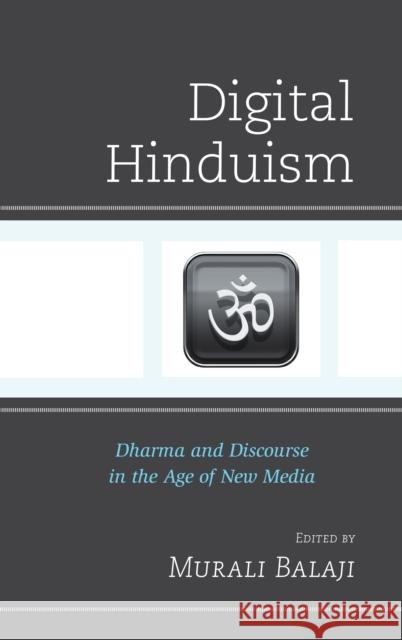Digital Hinduism: Dharma and Discourse in the Age of New Media » książka
Digital Hinduism: Dharma and Discourse in the Age of New Media
ISBN-13: 9781498559171 / Angielski / Twarda / 2017 / 208 str.
Digital Hinduism is an edited volume seeking to build a scholarly discourse about how Hinduism is being defined, reformed, and rearticulated in the digital era and how these changes are impacting the way Hindus view their own religious identities. Moreover, it seeks to expand and enrich the fast developing scholarship on digital religion, in part because the age of new media has offered many new narratives on the convergence of philosophy, practice, praxis, and discourse through new technologies and platforms. To this end, this volume seeks to showcase how dharmic practices connect with new media technologies. This book draws from both media studies and religion scholarship, drawing from and building upon Anderson's (1982) notion of imagined communities. Additionally, this volume seeks to interrogate how digital Hinduism has been shaped in response to the dominant framing of the religion, which has often relied on postcolonial narratives devoid of context and an overemphasis on the geopolitics of the Indian subcontinent post-partition. From this perspective, this volume challenges previous frameworks of how Hinduism has been studied, particularly in the West, where Marxist and Orientalist approaches are often ill-fitting paradigms to understanding Hinduism. The volume engages with and critiques some of these approaches while also enriching existing models of research within media studies, ethnography, cultural studies, and religion.











